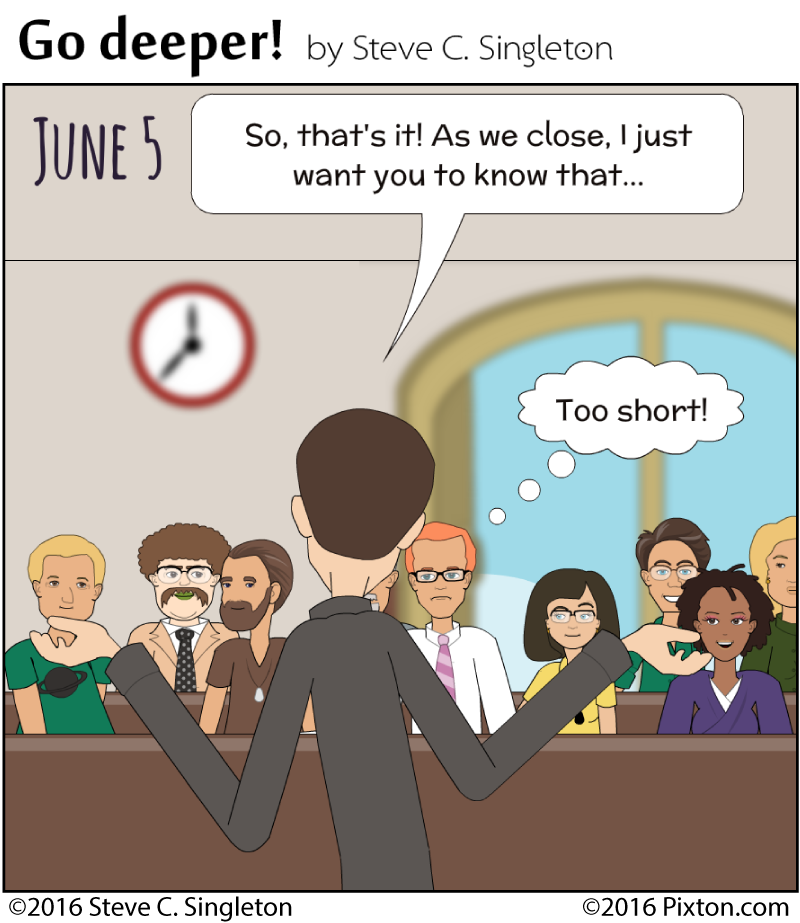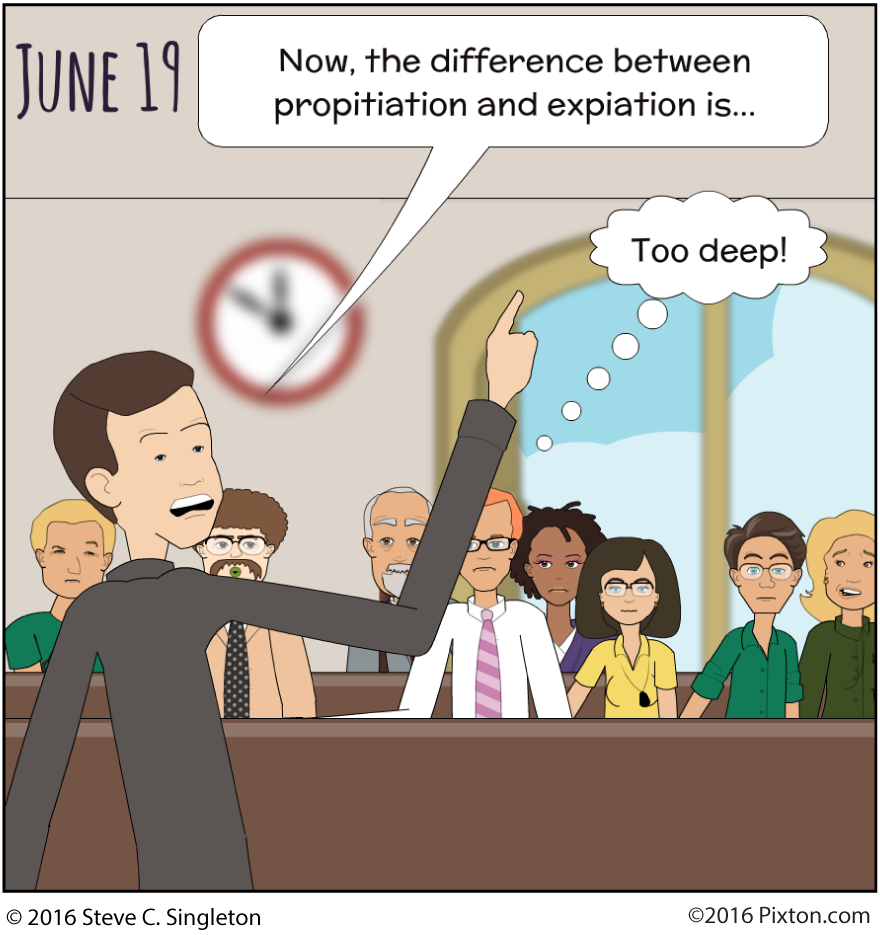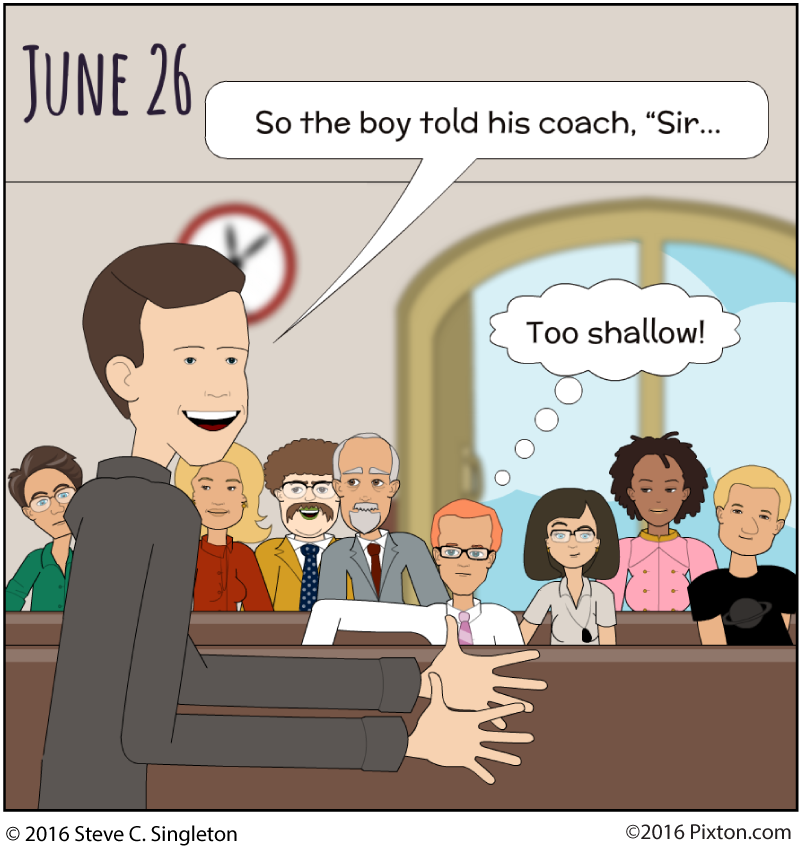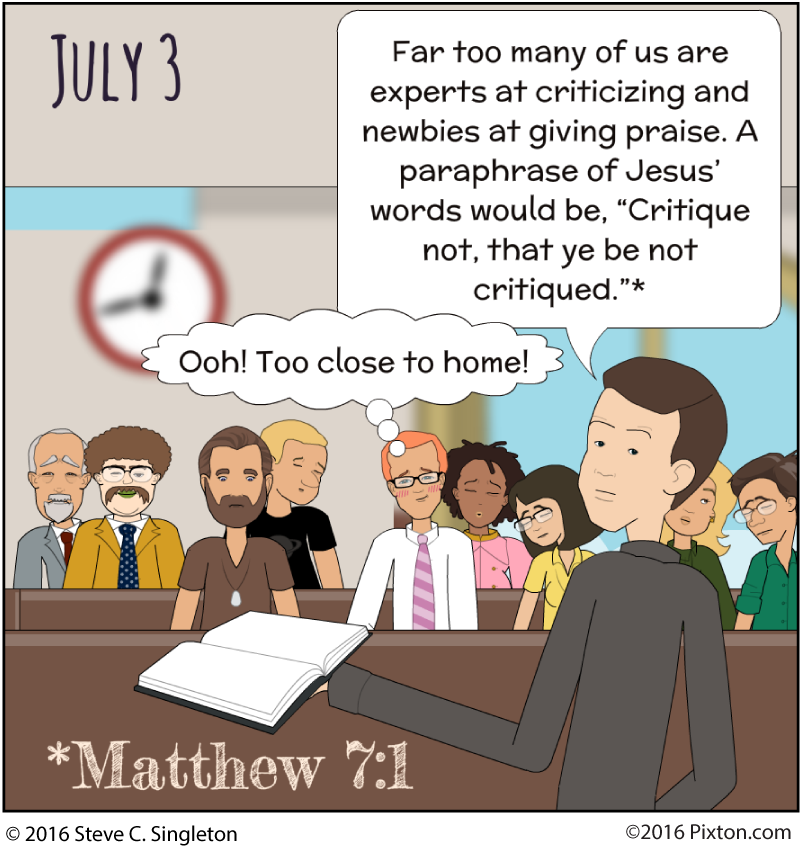Poisonous righteous, part two: Judging self-appointed judges (Jesus vs. the Pharisees)
Putting the mental in judgmental
The term ‘Pharisee’ appears 99 times in the New Testament, 91 times in the Gospels. In one text after another, Pharisees display a fondness for being critical, especially toward Jesus. In Mark two alone, they do not like that Jesus is eating with tax collectors and sinners (Mark 2:16); they wonder aloud why his disciples do not fast (Mark 2:18); and they accuse his disciples of working on the Sabbath (Mark 2:24). After Jesus defends himself against their criticism for healing on the Sabbath, the Pharisees are already plotting his murder (Mark 3:6).
Jesus portrays the Pharisee as manifesting this tendency to criticize even in their prayers: “God, I thank you that I am not like other people—robbers, evildoers, adulterers—or even like this tax collector” (Luke 18:11). What a tragedy that the most outstanding religious leaders of first-century Judaism are the self-appointed judges of their communities! All of the good they otherwise desire to do—preserving their people from the inroads of paganism, pointing them to the inspired Word of God, and restoring an interest in strict obedience to Yahweh—they destroy by this moralistic bent.
Tendency to judge a major issue
The gospel texts make clear that their judgments against Jesus are erroneous because they are superficial. Jesus eats with tax collectors and sinners, not as a demonstration that he condones their sinful lifestyle, but as an effective way to reach them with a redemptive message. His disciples do not fast because their immediate mission to assist God’s Anointed takes priority over efforts at personal self-improvement. Serving the Messiah is also a higher duty than the keeping of the Sabbath rules, and God’s granting of miraculous power to Jesus demonstrates His approval of Sabbath healings.
Mark’s original readers probably did not miss the irony of the Pharisaic plot to kill Jesus. Although committed to aligning their goals with God’s, they seek to murder a man strenuously working to turn hardened sinners to repentance, to provide spiritual food to the thousands famished for it, and to display God’s mercy toward the sick and those physically disabled.
In Mark the criticism continues as the Pharisees next ask why Jesus’ disciples eat with unwashed hands, breaking the traditions of the elders (Mark 7:1-5). Our Lord’s reply proves that the traditions they would bind on the people are misguided (Mark 7:8-13). He concludes by offering them and the crowd a proverb: “nothing outside a person can defile them by going into them. Rather, it is what comes out of a person the defiles them” (Mark 7:15).
Privately, Jesus explains to his disciples the meaning of his proverb (Mark 7:17-23). Food does not defile a person (what goes into them), but their evil thoughts (what comes out of them) do defile them. The Pharisees need to change their focus from whether hands are washed to the things that really matter—the cleansing of the mind and how to maintain its purity.
In their next encounter with Jesus the Pharisees ask him for a sign from heaven (Mark 8:11). Such a question arrogantly ignores the constant signs God is continually planting around Jesus: healing the sick, restoring the disabled, casting out demons, feeding the 5000, and preaching good news to the anxious crowds. All of these they reject, either unreasonably narrowing the criteria for a sign they would find acceptable or determined to reject any sign that he would offer.
In the final two cases recorded in Mark’s Gospel, the Pharisees seek to entrap Jesus in what chess players call a fork move (Mark 10:2-12; Mark 12:13-17). The first involves divorce and the second paying tribute to Caesar. In both cases, they reveal that their interest is catching Jesus in a mistake rather than discerning what truly is the will of God.
Self-appointed judges not limited to Judaism and Christianity
Religious people who think their main focus concerns judging the actions and attitudes of others are certainly not confined only to Judaism and Christianity. In this week’s news, driver’s education instructors in Gaza complained that the police under the administration of Hamas are fining them for attempting to instruct women learners without supervision. The same story also mentions that young man are hauled in “for questioning or worse because they sport certain hairstyles or where low-rider jeans.”
Even in America’s corporate world we hear tales of HR employees who are known as being highly enthusiastic implying their authority. Their coworkers think they are ‘enforcement addicts.’ Some employees believe that HR creates an environment of oppression because of their overly-vigilant policy enforcement. It seems likely that the Pharisees were creating a similar environment of oppression among the Jewish communities of first-century Palestine. Modern Pharisees can create a similar atmosphere within their churches today.
Jesus’ warning: “Judge not!”
What is the antidote to this “poisonous righteous” criticizing agenda? Jesus administers it as he nears the climax of the Sermon on the Mount: “Do not judge, or you too will be judged. For in the same way you judge others, you will be judged, and with the measure you use, it will be measured to you” (Matthew 7:1-2). Jesus does not want his disciples to start out on a lifelong quest of critiquing the lives of others but to join him in a different mission: to seek and to save those who are lost (Luke 19:10). After all, he has not come to condemn the world but to save it (John 3:17).
This passage has received a tremendous amount of attention. Non-believers cite it to justify any and every practice conflicting with the teachings of Scripture. In their view, Jesus advocates forsaking the traditional practice of grounding standards of behavior in the holiness of God (see Leviticus 19:2) in favor of embracing moral relativism. This new ethic is so often expressed in today’s world with declarations such as, “I would not presume to impose my personal morality on you; who am I to judge?” Such a statement often precedes a quotation of Matthew 7:1.
Semitic emphatic idiom
The context of this verse, however, indicates that Jesus is not prohibiting all judging. He simply does not want us to make a career out of judging others. Just like in Matthew 9:13, where Jesus quotes Hosea 6:6, “I desire mercy, not sacrifice,” we should understand “Judge not” as a Semitic figure of speech that emphasizes one alternative by overstating a preference for it over its rival. For another example see Luke 14:26.
Yet such nuancing of Jesus’ command should not lead us to ignore the message of Matthew 7:1. All who seek to lead people into paths of righteousness run the risk of erring the same way that the Pharisees did. If we follow their example, we make things worse for the people around us, not better, for now they will feel justified by our sorry example to ignore our warnings.
Step down from the bench
As a recovering Pharisee myself, I have decided that I have done so much judging in the past that I have almost relinquished my right to judge anyone. At the very least, I have decided not to be the first in line to pass judgment on others but to look at my own sins first, determine to make changes, and seek God’s forgiveness. Yet neither can I recommend moral relativism.
As a third alternative, I can choose to explain things this way: “Here is what God’s Word teaches on this issue, and I for one, so prone to go my own way in rebellion against His will, am committed to submit to the Divine Designer and follow his instructions. If you have a problem with that, let’s talk about whether our differences are over what God’s word really says. Perhaps you understand these passages better than I do. But if not, I urge you to reconsider what you are doing, not to persuade you to conform to what I am doing but to bow to the revealed Word of God. I promise to love you and do what I can to help you, no matter what you decide.”
People may or may not respond favorably to this approach, but they will not see you as a self-righteous Pharisee, intent on judging them while keeping aloof from their struggles.
Want to go deeper?
Robert H. Stein. “Overstatement,” 8-11 in Method and Message of Jesus’ Teachings. Rev. ed. Louisville, Ky.: John Knox, 1994.
John Fischer. “Step 1: we admit that our single most unmitigated pleasure is to judge other people,” 13-22 in 12 Steps for the Recovering Pharisee (like me). Minneapolis, Minn.: Bethany House, 2000.
Juán de Valdés. Commentary upon the Gospel of St. Matthew. Trans. John T. Betts. London: Trübner, 1882. 115-117.
This author makes the crucial point that people of the world are often guilty of judging others as much or more than the Lord’s people.
(The online version of this commentary is one of many available, which you can access here.)







I felt so self-righteous. I felt so wronged, so injured. I nursed a grudge. I started cultivating a seed of it, which grew to a tree, which started bearing fruit.
Jesus took on the self-righteous “judges” of Israel, many of whom were the scribes and Pharisees, at the outset of His earthly ministry. Matthew’s account of the Sermon on the Mount illustrates this clearly.
Just as the self-righteous have judged the “heathen” to be sinners on the basis of their works, so God judges the “righteous” by their works, and they fail the test. The self-righteous fail to live up to the standard which they require of others. And thus, while these “judges” are right in concluding that those they judge are sinners, they are foolish not to see themselves as sinners as well. When the standard for judgment is a man’s works, every man fails to meet the standard.
Self-righteous piety and worldliness they are two of the most dreaded toxic poisons any church can swallow. As in most things in life there are two ditches on either side of the path of life and Christianity usually swings back and forth like a great pendulum between the two extremes with very few people letting go at the right time and finding the road of balance beneath their feet.